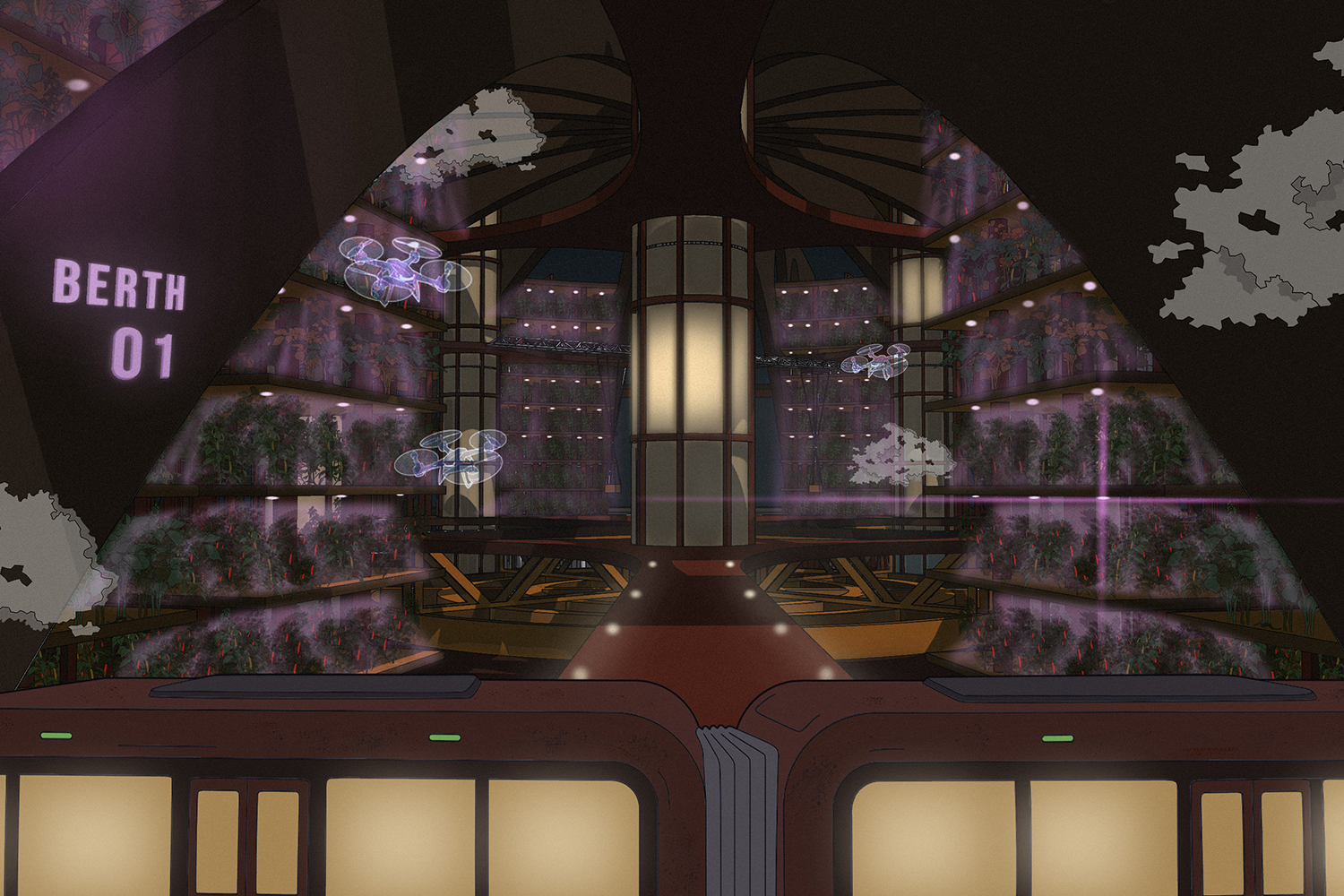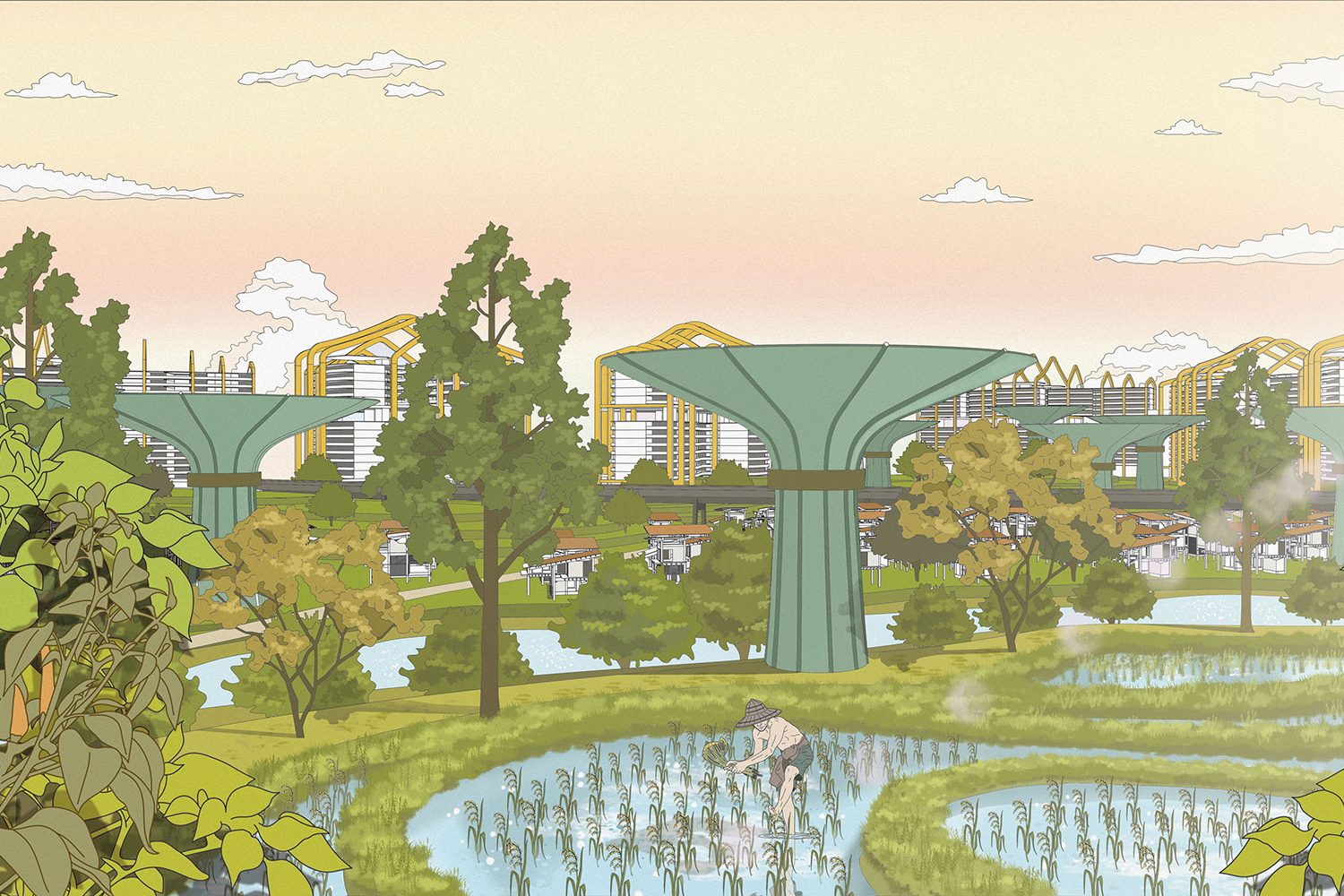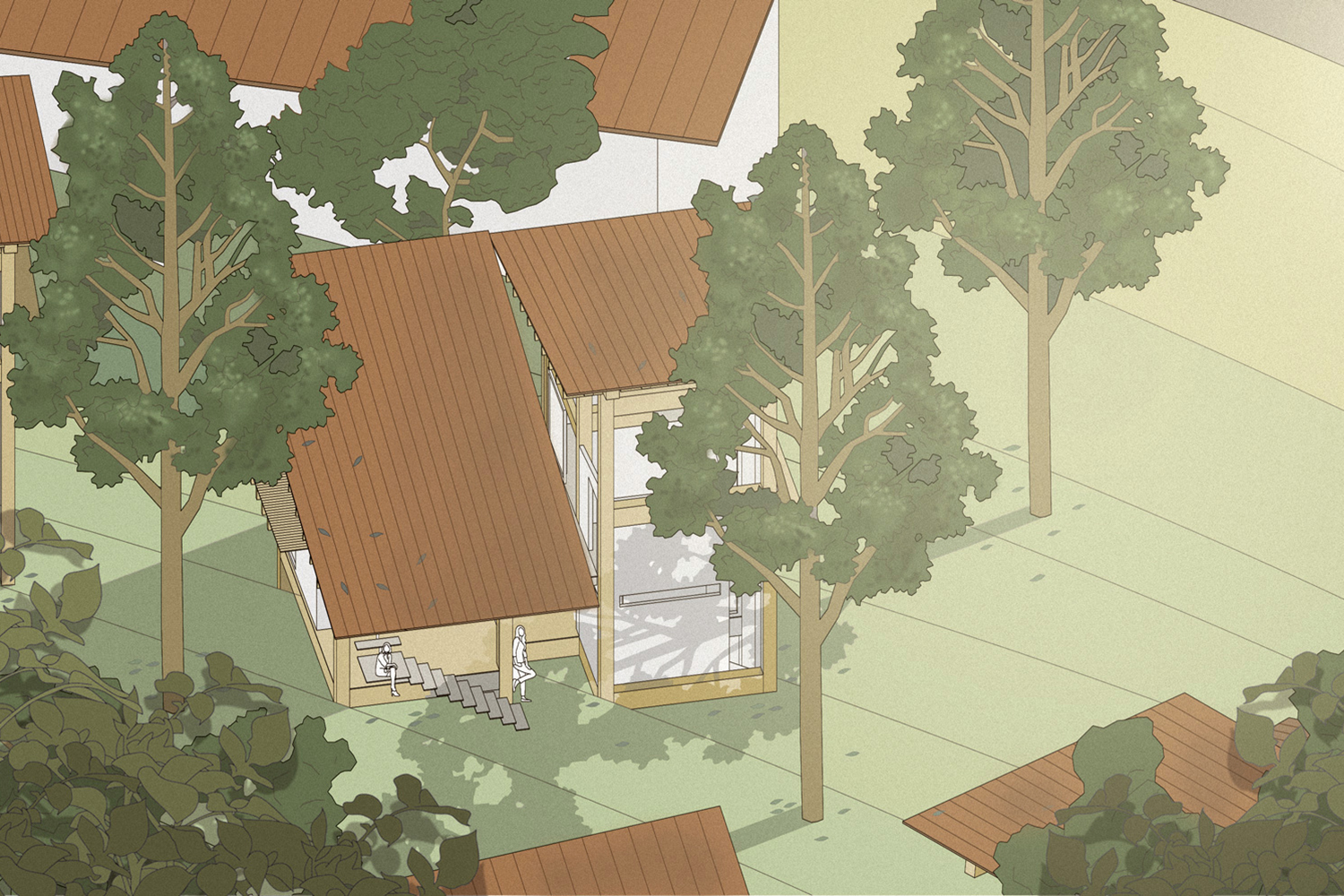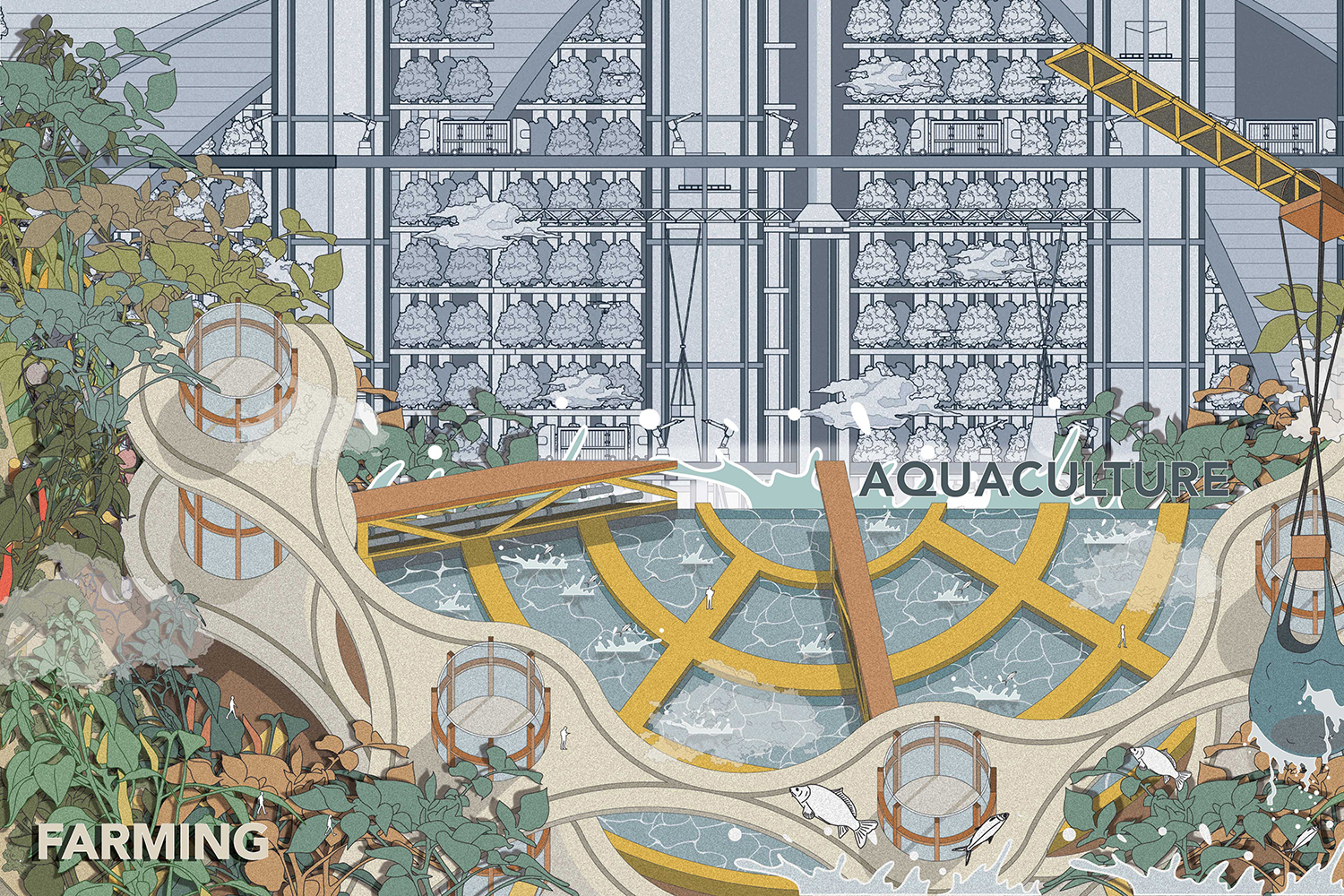Sean Lee Jun Wei
Singapore University of Technology and Design
Singapore
The triumph of liberal democracy, the dominance of capitalism and the triviality of environmental and social issues in the grand scheme of things had been foretold by Francis Fukuyama in The End of History? It was to be that the Soviet Union would inevitably dissolve, and the evolution of ideologies come to an end. Democracy reigns supreme and minor resurgences in differing ideologies are but a slight deviance in mankind’s charted trajectory toward political homeostasis.
The resurgence of China and Russia, military coups, a global emergency in climate change and social unrest in Western liberal democracies have thrown a wrench in the works toward this “inevitable march” to the end of history.
This thesis aims to define the “Hyper Village”, a speculative projection of the post urban condition posited by Arata Isozaki. The post-industrial cities of the world are seeing an increasingly digitally enabled society and its effects permeating every facet of society, from economics to politics.
Cities remain a topic of contention among architects and planners alike in the last few decades. There is no doubt that cities provide infinite possibilities to the metropolitan, yet this promise comes at a gargantuan cost. In line with Rem Koolhaas’s recent interest in the countryside, the focus has shifted ever so slightly to the hinterlands where architects should seek to draw lessons from and adapt them into city planning and urban renewal. This thesis design, therefore, looks at urban renewal as opposed to the continued expansion of cities to meet the world’s needs. The project is situated in Singapore’s heartlands, where it explores the resuscitation of the countryside while building on existing city infrastructure. The projects seek to imagine a sustainable future that employs the efficiency of cities and the stewardship of resources in the hinterlands.




